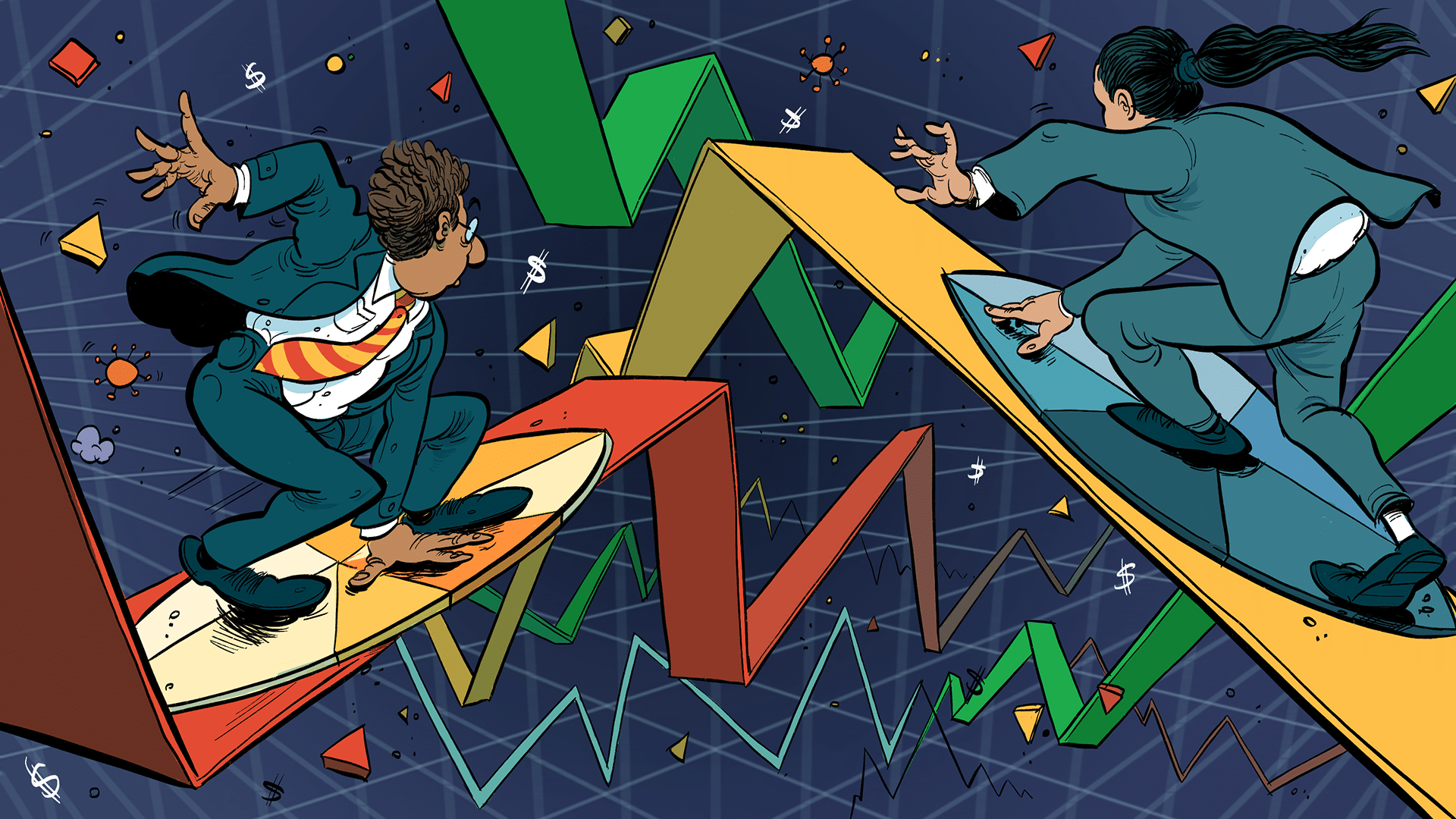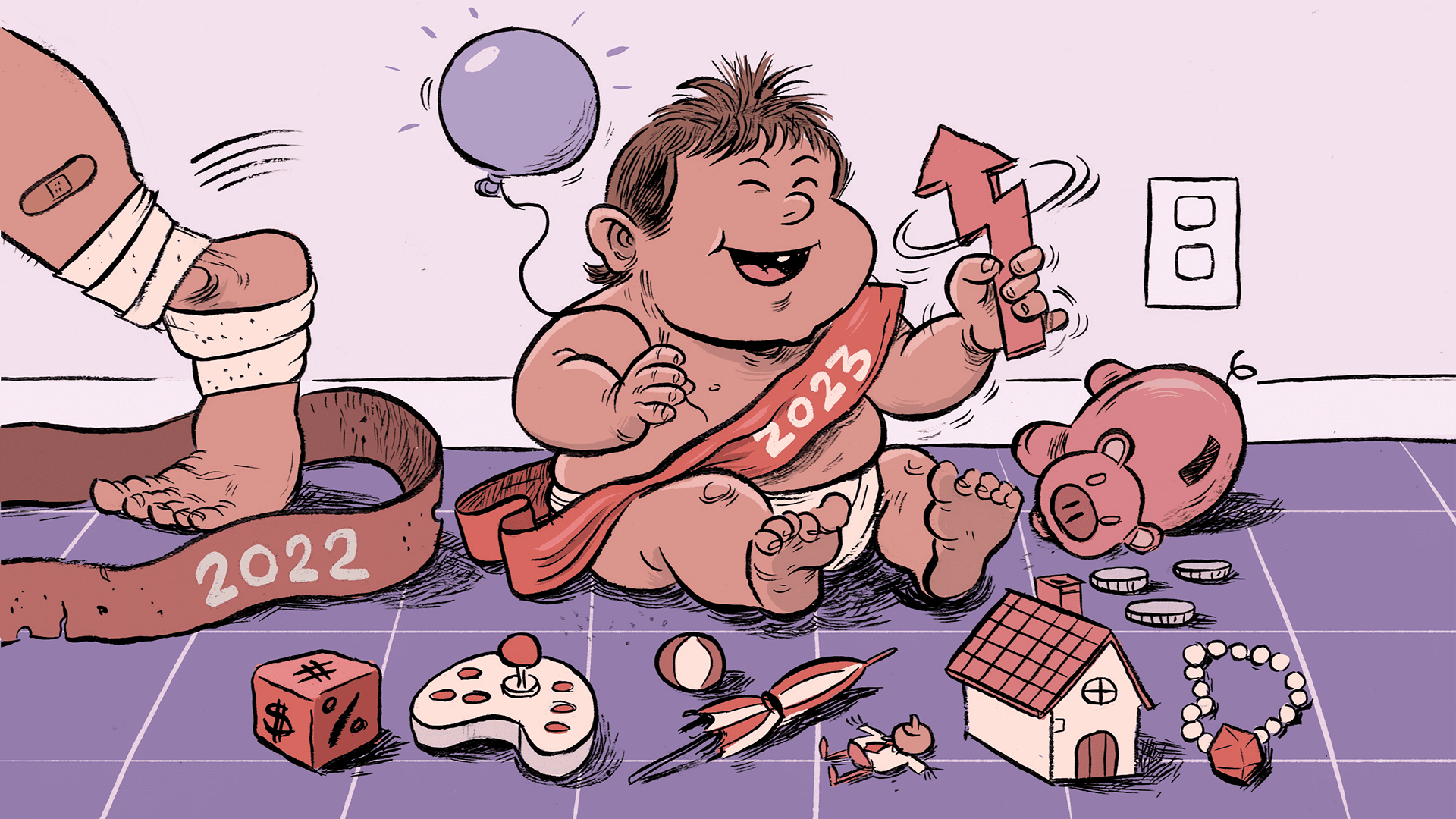
Finding calm during market volatility
Huge drops in your portfolio can be scary. How you handle it can make a big impact on your finances.
For many of us, a market downturn could be upsetting but may not register high on our irritation radar given what we have been through the past two years. Yes, anxious business headlines can be disconcerting but we’ve been through successive waves of the pandemic and many of us may have grown thick skins: A decline after historic market highs may not cause us to break stride.
Natasha Kovacs, a Senior Planner with TD Wealth, says that financial volatility can be disruptive to your wealth plans and also for your peace of mind.
“Nobody likes bad news. When I work with my clients, I make sure that their investments are on track to succeed over the long term despite any temporary setback,” says Kovacs. “Everyone should be investing according to how much risk they are comfortable with. So, whatever happens over a lifetime of investing, no one should be losing sleep about brief interludes.”
Kovacs says while the issues worrying investors may change, market volatility is something we have seen many times. Seasoned investors will be buying stocks at bargain prices because they know this downturn is temporary and better days will be back sooner or later.
Of course, seeing investments drop suddenly can have an impact on more than your portfolio — the anxiety, too, can cause you to question your motives. Instead of getting angry and ditching a carefully structured investment plan, she offers some calming action items that may help you to weather a temporary storm.
Don’t panic Market analysts and behavioural scientists agree: Doing something rash in the heat of the moment can bring far worse consequences. An example of a knee-jerk reaction would be to sell those once-favourite mutual funds or stocks if they are temporarily in the red. Kovacs says that leaving the market only means you could be left standing on the sidelines when the market reverses again. Studies prove that jumping in and out of the market can have a dreadful impact on your portfolio over time.1
Take a breather When there’s bad news, everyone wants to shout about it, but you don’t have to listen. Cycling through social media and searching for the most disconcerting stories — “doom scrolling” — may only stress you out. Time to unplug, go for a walk and, in a calm thoughtful manner, think about what all this means. Kovacs says it may be a cliché, but a good night’s sleep has a way of allowing you to recharge and approach any problem with clarity.
Gain some perspective Since markets go up and down day by day, it might be hard for long-term investors to see how much their investments are gaining ground until they have put a couple economic cycles behind them. Kovacs says that while we may have hit a rough patch, we should remember that 2021 was a singular year for market highs. If you have been investing for many years and have a well-balanced plan, you may see that despite some harsh days, your investments could be sound.
Ask if this presents an opportunity Looking at events from a short-term vs. long-term perspective can separate the optimists from the pessimists. Many of us are investing for the long term which can make stock declines just bumps in the road. That perspective can also allow some investors to take advantage of short-term negative events. For instance, some stocks you may have been admiring last month may suddenly seem so much cheaper. If the companies are still fundamentally sound, you may consider investigating further to see if they have a place in your portfolio.
Talk to your advisor If you are still uneasy about the state of your portfolio or larger wealth plan, you might consider checking in with your planner or advisor: It’s what they are there for. Your financial advisor can go over your plan and your goals and talk about the potential impact a single day can have on your long-term plan. Among the information you may hear is that time is on your side: A steady plan that suits your risk profile is built defensively, knowing that markets tumble from time to time.
Kovacs says Canadians are fully aware there will be a nasty snowstorm every winter, but no one can predict what day it will come nor how much shovelling we’ll be doing. Getting upset doesn’t stop the snow but being prepared can make a difference.
So too with the markets. If you know this is how the economy operates, it’s easier to handle. “Remember,” Kovacs says, “if someone is selling a stock in despair, someone else is buying it with hope — it just depends on your attitude.”
DON SUTTON
MONEYTALK LIFE
ILLUSTRATION
VERONICA PARK
- The Power of Staying Invested, TD Asset Management, accessed Jan. 25, 2022, https://www.td.com/ca/en/asset-management/documents/investor/pdf/news-insight/Power_Staying_Invested_en.pdf ↩
















